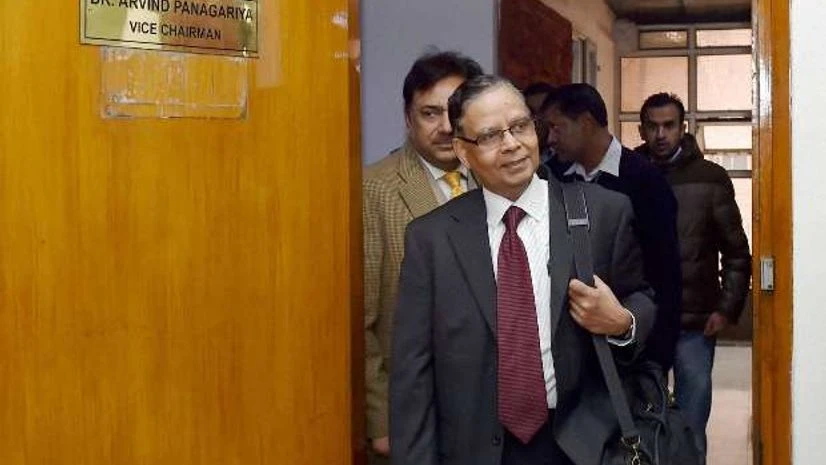States easing land leasing rules to push industrialisation should also relax norms on farm land use for other purposes, said NITI Aayog Vice-chairman Arvind Panagariya.
"In the context of the difficulties in land acquisition under the 2013 land acquisition law, states wishing to facilitate industrialisation can further benefit from liberal land leasing if they simultaneously liberalise the use of agricultural land for non-agricultural purposes," Panagariya said in his blog post on the website of NITI Aayog.
The conversion of agri land for non-agricultural use, he said, requires permission from the appropriate authority, which can take a long time.
He added that the states can address this issue either by an amendment of the law to permit non-agricultural use or introduction of time-bound clearances for conversion of agri land use.
The ongoing reforms open up avenues for industrialisation as long-term land leases allow the owner to retain ownership while earning rent on his land. In addition, the owner will have the right to renegotiate terms of the lease once the existing one expires.
He said the original intent of the restrictive tenancy laws is no longer relevant as these have detrimental effect on not just the tenant whom the laws are meant to protect but the landowner and implementation of public policy.
He is of the view that the tenant lacks security of tenure.
This, in turn, discourages him from making long-term investments in land and also leaves him feeling perpetually insecure about cultivation rights.
Furthermore, it deprives him of potential access to credit by virtue of being a cultivator. The landowner also feels a sense of insecurity while leasing land, with many choosing to leave land fallow. The latter practice is gaining currency as their children seek non-farm employment, he added.
Explaining further, he said, "Leasing laws relating to rural agricultural land in states were overwhelmingly enacted during decades immediately following the Independence."
At the time (after Independence), the abolition of zamindari and redistribution of land to the tiller were the highest policy priorities.
Top leadership of the day saw tenancy and sub-tenancy as integral to feudal land arrangements India had inherited from the British. Therefore, tenancy reforms not only sought to transfer ownership rights to the tenant but also prohibited or heavily discouraged leasing and sub-leasing of land, he added.

)
